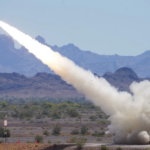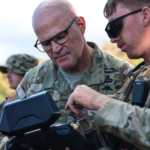BAE Systems yesterday said it received a $27 million contract to complete construction of a state-of-the-art and energy-saving chemical processing facility at the Holston Army Ammunition Plant in Tennessee. The contract initiates the final phase of construction, which began in 2011. The total cost of the Army project will be approximately $143 million, the largest single investment at Holston. When completed later this year, the new facility will transform and modernize the way acetic acid and acetic anhydride are produced,…
Contract Updates
SNC Manufacturing LLC (Orocovis, Puerto Rico) – $15,857,625
SNC Manufacturing LLC,* Orocovis, Puerto Rico, has been awarded a maximum $15,857,625 firm-fixed-price, indefinite-delivery/indefinite-quantity contract for mechanics cold weather coveralls. This was a competitive acquisition with five responses received. This is a five-year contract with no option periods. The ordering…
Huntington Ingalls Inc. (Newport News, Virginia) – $9,434,758
Huntington Ingalls Inc., Newport News, Virginia, was awarded a $9,434,758 cost-plus-fixed-fee modification to a previously awarded contract (N00024-22-C-2105) to exercise options for planning and design yard activities for standard navy valves installed in commissioned nuclear-powered submarines, submersibles, and aircraft carriers.…
JRC Integrated Systems LLC (Washington, D.C.) – $10,708,589
JRC Integrated Systems LLC, Washington, D.C., is being awarded a $10,708,589 cost-plus-fixed-fee term contract (including option years) (N0003026C3031) for Trident II D5 Strategic Weapon System programs and Dreadnought programs. Tasks to be performed include operator and operational knowledge and expertise…
Lockheed Martin Corp. Missiles and Fire Control (Archbald, Pennsylvania) – $23,097,963
Lockheed Martin Corp., Missiles and Fire Control, Archbald, Pennsylvania, is awarded a $23,097,963 modification (P00007) to a previously awarded firm-fixed-price contract (N0001924C0004). This modification adds scope for the production and delivery of 4,002 Laser Guided Training Rounds Bomb Dummy Unit…

 By
By 











